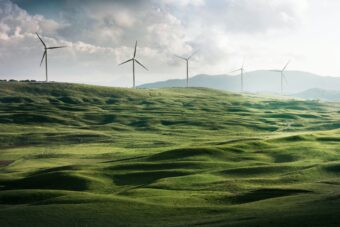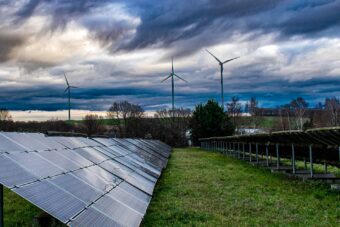
The heads of the European Investment Bank (EIB), the European Central Bank (ECB) and the International Energy Agency (IEA) are today calling on leaders from government, finance and industry across Europe to deliver a clean energy transition which is just, swift and maintains competitiveness.
Ministers, ambassadors, business leaders, central bankers and other key stakeholders are gathering at the IEA’s headquarters in Paris for the high-level conference. In opening remarks to delegates, ECB President Christine Lagarde, EIB President Werner Hoyer and IEA Executive Director Fatih Birol will issue a call to action to accelerate the clean energy transition.
In the face of severe disruption in global energy markets, Europe must scale up funding to support an orderly transition and position itself among other industrial heavyweights in the new energy economy. In the IEA’s pathway for the global energy sector to reach net zero emissions by 2050, annual clean energy investment in the European Union needs to rise significantly by 2030.
More:
- STEPPING UP IN RENEWABLES TOWARDS ENERGY STABILITY
- UPCOMING EU HYDROGEN BANK PILOT AUCTION: EUROPEAN COMMISSION PUBLISHES TERMS & CONDITIONS
- RENEWABLES COMPETITIVENESS ACCELERATES, DESPITE COST INFLATION
The ECB’s second economy wide climate stress test finds that frontloading clean energy investment significantly reduces medium-term costs and risks for firms and households. But besides geopolitical tension and high inflation, private sector investment faces a number of market barriers including policy uncertainty and lengthy permitting procedures that delay projects, deter investors and lead to cost overruns for developers.

European industry also finds itself at a competitive disadvantage regarding the price of energy. Compared with other regions, these prices are relatively high, and ambitious industrial programmes are being introduced in countries such as the United States, China, India, Japan and Korea to build up domestic supply chains, resource security and manufacturing capacity. Accelerating energy transition investment will help Europe limit dependence on major fossil-fuel producers and often volatile fuel markets.
The European Union has committed to spending at least 30 percent of its 2021-2027 budget on climate action. And development finance institutions such as the EIB have an important role to play in providing support for clean energy projects to crowd-in private sector engagement. For every euro spent by the EIB on its energy operations, it attracts a further 1.4 euros from the private sector. The EIB has already raised its financing for clean energy projects to unprecedented levels, and recently announced an additional 45 billion euros, on top of its regular lending volumes. This will go to supporting renewables and state-of-the art manufacturing in strategic net-zero industries to help accelerate the transition. Having already ceased all financing to unabated fossil fuels, the EU bank is well on track to support one trillion in climate and environmental sustainability investment this decade.
Today’s conference will discuss how policies and financial instruments can unlock further investment. Given the vast investments required, it will be important to pave the way for better access to funding. This includes steps to establish a green capital market union (CMU) to help finance – earmarked for the clean energy transition – flow seamlessly across borders. Such a union will also provide a robust yardstick for sustainable finance projects and help eliminate greenwashing practices. The clean energy transition can only succeed in an environment of price stability. Moreover, in its commitment to support an orderly transition, the ECB has taken decisive steps to integrate climate change considerations into its monetary policy framework and financial stability monitoring.
Source: IEA



